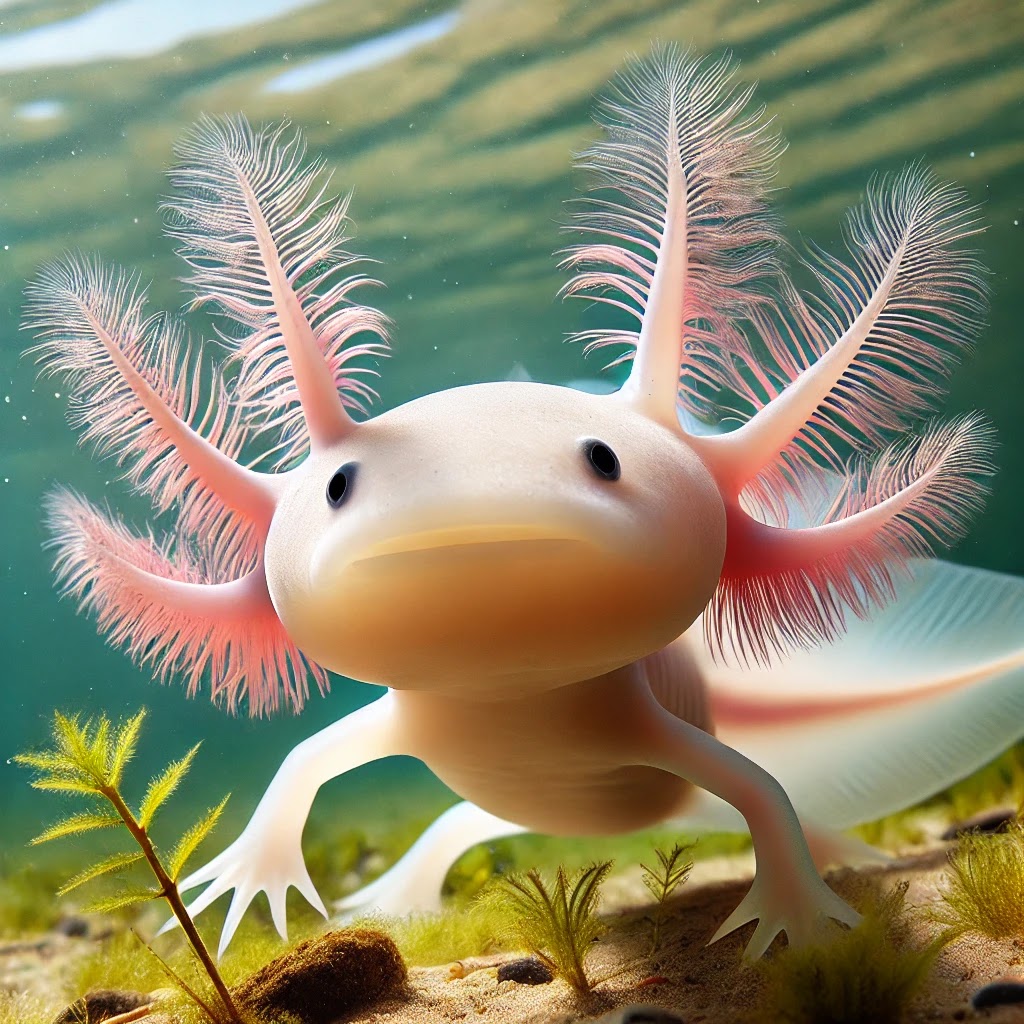Scientific Classification
Scientific Name: Ambystoma mexicanum
Kingdom: Animalia
Phylum: Chordata
Class: Amphibia
Order: Caudata (Salamanders)
Family: Ambystomatidae
Conservation Status: Critically Endangered (CR) on the IUCN Red List, Appendix II under CITES
Diet: Insects, worms, small fish
Characteristics
The axolotl, often referred to as the 'Mexican walking fish', is a type of salamander that belongs to the Ambystomatidae family. It is native to the lakes of central Mexico, primarily Lake Xochimilco. Axolotls have a lifespan of around 10 years and reach sexual maturity between 18 and 24 months, typically growing to a length of 15 to 45 cm. Despite reaching adulthood, axolotls retain their juvenile aquatic features, such as external gills, a phenomenon known as neoteny.
Remarkable Regenerative Abilities
Axolotls are famous for their exceptional regenerative abilities. They can regrow lost body parts, including limbs, spinal cord, and even parts of their heart and brain. Moreover, they possess a unique ability to accept transplanted organs from other axolotls without immune rejection. This makes them a valuable model for scientific research in fields like genetics, developmental biology, and regenerative medicine.
Habitat and Distribution
Natural Habitat: Axolotls are found in Lake Xochimilco and Lake Chalco in central Mexico. However, due to habitat loss caused by urban expansion and the draining of lakes for Mexico City's water supply, their natural range has significantly declined. Currently, the species survives mainly in the remnants of Lake Xochimilco, where conservation efforts are underway.
Threats and Conservation Efforts
The axolotl faces critical threats in the wild due to pollution, invasive species, and the shrinking of its natural habitat. Conservation measures include habitat restoration, breeding programs, and scientific studies to understand their unique biology better. Despite these efforts, the species remains critically endangered, relying heavily on human intervention for survival in the wild.










0 Comments